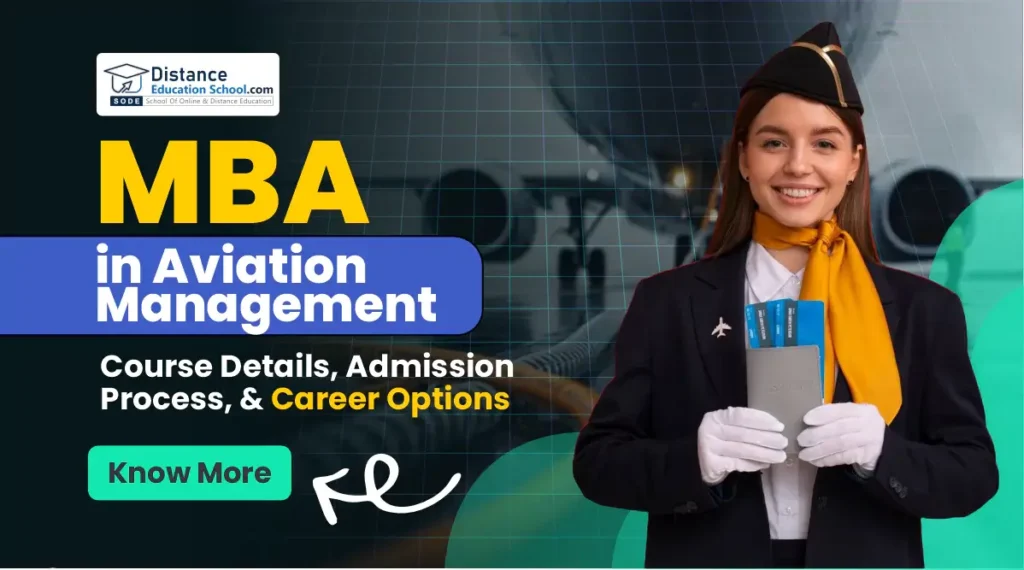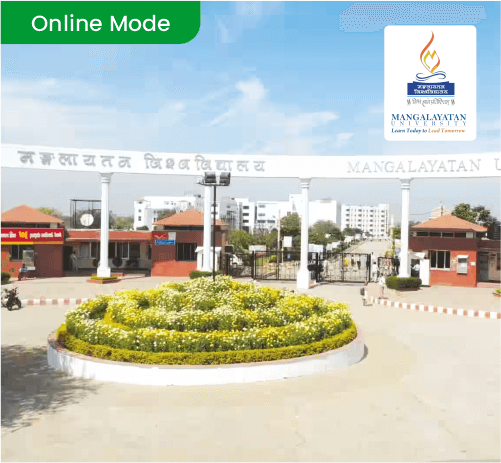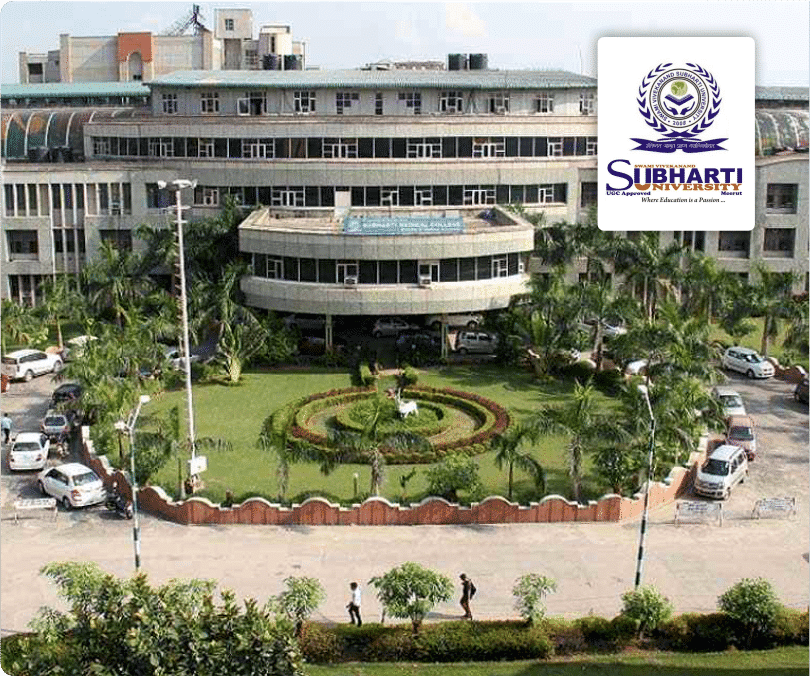
MBA in Aviation Management Course Details Admission Process and Career Options
The aviation industry, a key part of global transportation, needs skilled professionals to handle its challenges. MBA Aviation Management Course gives students the skills to manage different parts of aviation, preparing them for a busy work environment. The program teaches general management skills and specific knowledge about the aviation industry. This helps students solve problems that are unique to the aviation field. After completing the course, graduates can work in top positions at airlines, airports, or aviation consulting companies.
This blog gives a detailed look at what this special MBA involves, covering everything from what you will learn to how to get into the job options it opens up.
Online/Distance MBA Universities In Other Cities
What is an MBA in Aviation Management
MBA Aviation Management program is a postgraduate program designed to prepare graduates for senior management roles in the aviation industry. The duration of this course is 2 years. Students can pursue this course through regular, distance and online mode of learning. The university offering this course should be UGC-recognized and NAAC-accredited. It focuses on areas such as airport management, airline operations, air traffic control, safety protocols, and financial management within the aviation context. It combines core MBA subjects with specialized aviation courses, ensuring graduates are well-versed in general management and specific aviation issues. Here is an overview of an MBA Aviation Management:-
| Parameter | Details |
|---|---|
| Course Name | MBA Aviation Management |
| Duration | 2 years (Full-time) / 2-4 years (Distance and Online) |
| Eligibility | Bachelor’s degree in any discipline (minimum 50% marks or equivalent) |
| Admission Process | Entrance Exam → Group Discussion (GD) → Personal Interview (PI) |
| Top Entrance Exams | CAT, MAT, XAT, CMAT, GMAT |
| Course Fees | ₹2 Lakhs to ₹15 Lakhs (varies by college and mode of study) |
| Subjects Covered | Aviation Economics and Finance Airline Operations Management Aviation Safety and Security Airport Management and Planning Strategic Management and Marketing Supply Chain Management in Aviation |
| Job Roles | Airport Operations Manager, Airline Manager, Aviation Consultant, Cargo Operations Manager, Aviation Safety Expert |
| Top Recruiters | IndiGo, Air India, SpiceJet, Lufthansa, Emirates, Qatar Airways, Aviation consultancy firms and airport authorities |
| Salary Range | ₹6 LPA to ₹15 LPA (varies based on role and experience) |
Syllabus of MBA Aviation Management
The syllabus of an MBA Aviation Management is designed to blend core management principles with specialized knowledge of the aviation industry. It covers topics that prepare students for leadership roles in airlines, airports, and other aviation sectors. Here’s an outline of the general syllabus for the program
| Semester | Subjects |
|---|---|
| Semester 1 |
Principles of Management Managerial Economics Accounting and Financial Management Marketing Management Organizational Behavior Quantitative Techniques in Business Business Communication |
| Semester 2 |
Operations Management Human Resource Management Airline and Airport Operations Aviation Business Management Logistics and Supply Chain Management Research Methodology Business Law and Ethics |
| Semester 3 |
Aviation Safety and Security Management Aviation Economics and Finance Strategic Management in Aviation Air Transport Management Customer Relationship Management in Aviation Electives (e.g., Digital Marketing, Data Analytics) |
| Semester 4 |
Airport Planning and Management Airline Marketing and Revenue Management Project Management in Aviation Aviation Policy and Regulation Dissertation/Project Work Internship/Industry Training |
How to Apply for MBA Aviation Management
To be eligible for an MBA Aviation Management, candidates must usually hold a bachelor’s degree, often with a stipulation on the minimum GPA. Some universities also require work experience in the aviation industry or a related field. The admission process involves:
Research Colleges and Programs: Identify colleges offering MBA Aviation Management. Check their rankings, course details, fees, and placement records to choose the right one.
Check Eligibility Criteria: Ensure you meet the basic requirements, such as a bachelor’s degree with at least 50% marks and valid entrance exam scores.
Appear for Entrance Exams: Take management entrance exams like CAT, MAT, XAT, or university-specific tests accepted by your chosen colleges.
Prepare Required Documents
Gather necessary documents, including your academic transcripts, entrance exam scorecard, ID proof, and work experience certificates (if applicable).Submit Applications
Apply to your shortlisted colleges through their official websites. Fill out the application forms and pay the required fees.Complete Admission Formalities
Once selected, pay the admission fees and submit any additional documents to confirm your seat in the program.
Top Universities Offering MBA Aviation Management
If you want a bright future in the aviation field, an MBA Aviation Management is a great choice. Selecting a college that offers good learning and practical training is important. Here is a list of the best MBA universities offering MBA aviation management course.
| Institutes | Total Fees |
|---|---|
| University of Petroleum and Energy Studies - [UPES] | INR 13-15 lakhs |
| Hindustan Institute Of Technology And Science [HITS] | INR 5-7 lakhs |
| Jain University | INR 6-8 lakhs |
| Galgotias University | INR 3-6 lakhs |
| Jaipur National University | INR 5-7 lakhs |
| Dr. D.Y Patil University | INR 8-10 lakhs |
| Aj Aviation Academy | INR 2-5 lakhs |
| Institute of Logistics and Aviation Management [ILAM] | INR 5-7 lakhs |
| Hindustan Business School | INR 3-5 lakhs |
| Trade wings Institute of Management | INR 2-4 lakhs |
Career Options After MBA Aviation Management
An MBA Aviation Management prepares graduates for diverse and dynamic roles within the aviation industry. Here’s a detailed look at some of the prominent career options available after completing this specialized MBA:
| Job Role | Responsibilities | Skills Required | Potential Employers |
|---|---|---|---|
| Airport Manager | Oversees the daily operations of an airport. This includes managing airport security, negotiating contracts, handling personnel management, and ensuring compliance with federal regulations. | Strong leadership, decision-making, and strategic planning skills. | International and regional airports, private airport operators. |
| Airline Operations Manager | Manages the day-to-day operations of an airline, including scheduling flights, overseeing maintenance of aircraft, and managing staff to ensure safety and efficiency. | Excellent organizational, communication, and problem-solving skills. | Domestic and international airlines. |
| Aviation Consultant | Advises aviation companies on various aspects such as improving operational efficiency, cost reduction, and implementation of new technologies. | Expert knowledge of the aviation industry, analytical skills, and ability to provide practical solutions. | Aviation consulting firms, large aviation corporations. |
| Safety Manager | Implements safety protocols to ensure the wellbeing of passengers and staff, conducts safety audits, and reviews incident reports to develop risk management strategies. | In-depth understanding of aviation safety regulations and risk management. | Airlines, airports, regulatory bodies. |
| Cargo Manager | Oversees the transportation of goods via air, manages relationships with logistics companies, and ensures compliance with international shipping regulations. | Strong organizational skills, attention to detail, and knowledge of cargo handling and regulations. | Freight and cargo airlines, logistics companies. |
| Air Traffic Controller | Manages the flow of aircraft into and out of the airspace, communicates with pilots, and ensures safe takeoffs and landings. | Excellent focus, decision-making skills, and the ability to work under pressure. | Government bodies and private sectors controlling civilian airspace. |
| Revenue Management Analyst | Uses data analysis to forecast sales, adjust prices, and manage inventory to maximize an airline’s revenue. | Strong analytical skills, proficiency in data analysis tools, and knowledge of pricing strategies. | Commercial airlines and freight carriers. |
| Customer Service Manager | Ensures high-quality customer service, manages customer complaints and queries, and develops service enhancement strategies. | Strong communication skills, customer service orientation, and problem-solving skills. | Airlines, airports, and ground handling services companies. |
Conclusion
Pursuing an MBA Aviation Management offers better career opportunities and the chance to play a significant role in the exciting field of aviation. With the right preparation, candidates can embark on a fulfilling journey that promises professional growth and contributes to the safety and efficiency of global travel.
Interested in flying high with a career in aviation management? Visit the websites of top universities offering this MBA and contact their admissions offices for more information. Your future in aviation management starts now.
This blog serves as an essential resource for anyone considering an MBA Aviation Management, helping them make an informed decision about their educational and career paths.
Most Popular Blogs

Online BCA Courses in Jain University Online

Distance Education at Pondicherry University

Top 4 colleges to pursue Distance BBA in Andhra Pradesh

What are the top distance BSc colleges in Kerala

Know about the top 3 distance BCom universities in Madhya Pradesh



















